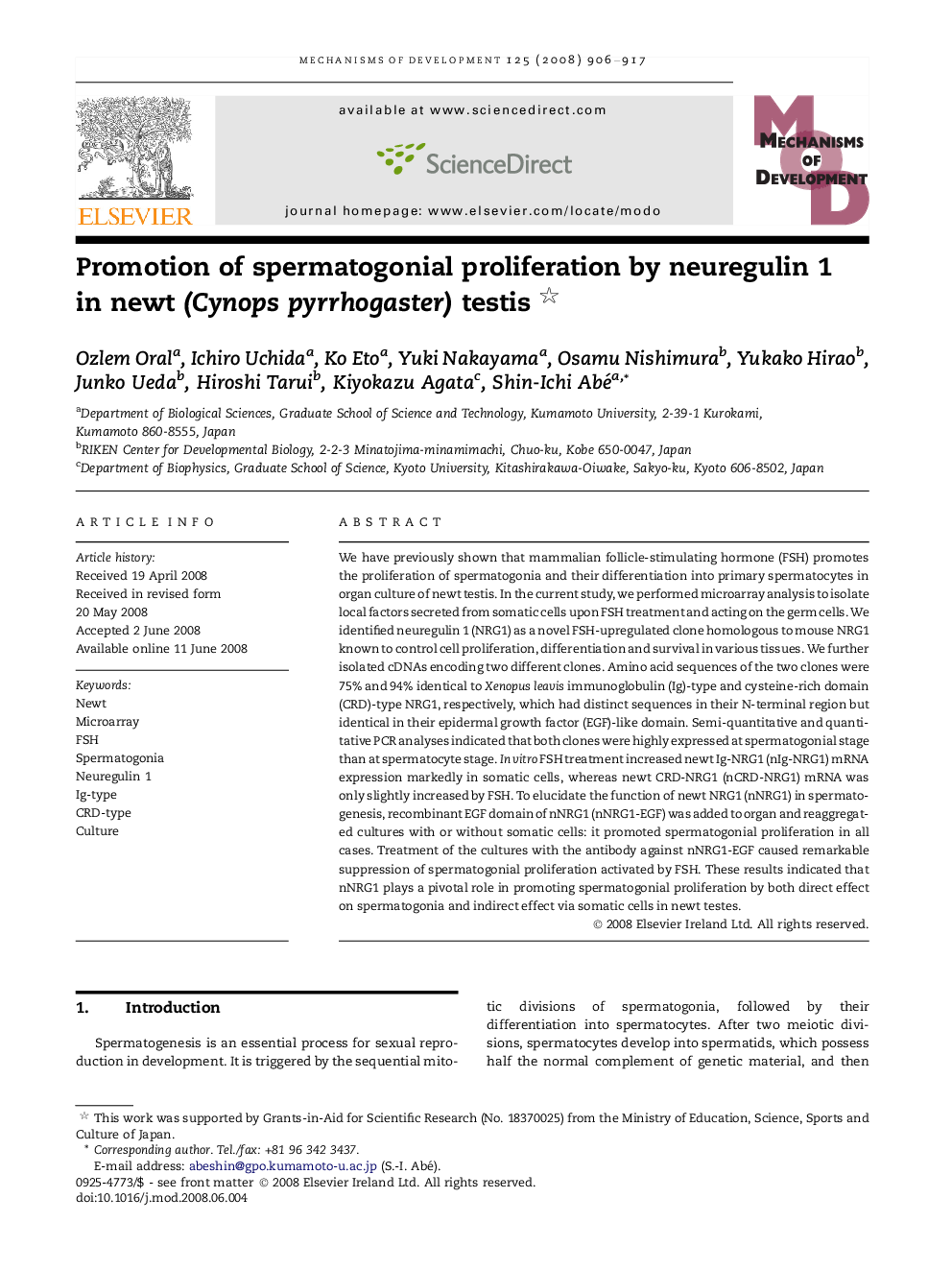| Article ID | Journal | Published Year | Pages | File Type |
|---|---|---|---|---|
| 2194765 | Mechanisms of Development | 2008 | 12 Pages |
We have previously shown that mammalian follicle-stimulating hormone (FSH) promotes the proliferation of spermatogonia and their differentiation into primary spermatocytes in organ culture of newt testis. In the current study, we performed microarray analysis to isolate local factors secreted from somatic cells upon FSH treatment and acting on the germ cells. We identified neuregulin 1 (NRG1) as a novel FSH-upregulated clone homologous to mouse NRG1 known to control cell proliferation, differentiation and survival in various tissues. We further isolated cDNAs encoding two different clones. Amino acid sequences of the two clones were 75% and 94% identical to Xenopus leavis immunoglobulin (Ig)-type and cysteine-rich domain (CRD)-type NRG1, respectively, which had distinct sequences in their N-terminal region but identical in their epidermal growth factor (EGF)-like domain. Semi-quantitative and quantitative PCR analyses indicated that both clones were highly expressed at spermatogonial stage than at spermatocyte stage. In vitro FSH treatment increased newt Ig-NRG1 (nIg-NRG1) mRNA expression markedly in somatic cells, whereas newt CRD-NRG1 (nCRD-NRG1) mRNA was only slightly increased by FSH. To elucidate the function of newt NRG1 (nNRG1) in spermatogenesis, recombinant EGF domain of nNRG1 (nNRG1-EGF) was added to organ and reaggregated cultures with or without somatic cells: it promoted spermatogonial proliferation in all cases. Treatment of the cultures with the antibody against nNRG1-EGF caused remarkable suppression of spermatogonial proliferation activated by FSH. These results indicated that nNRG1 plays a pivotal role in promoting spermatogonial proliferation by both direct effect on spermatogonia and indirect effect via somatic cells in newt testes.
